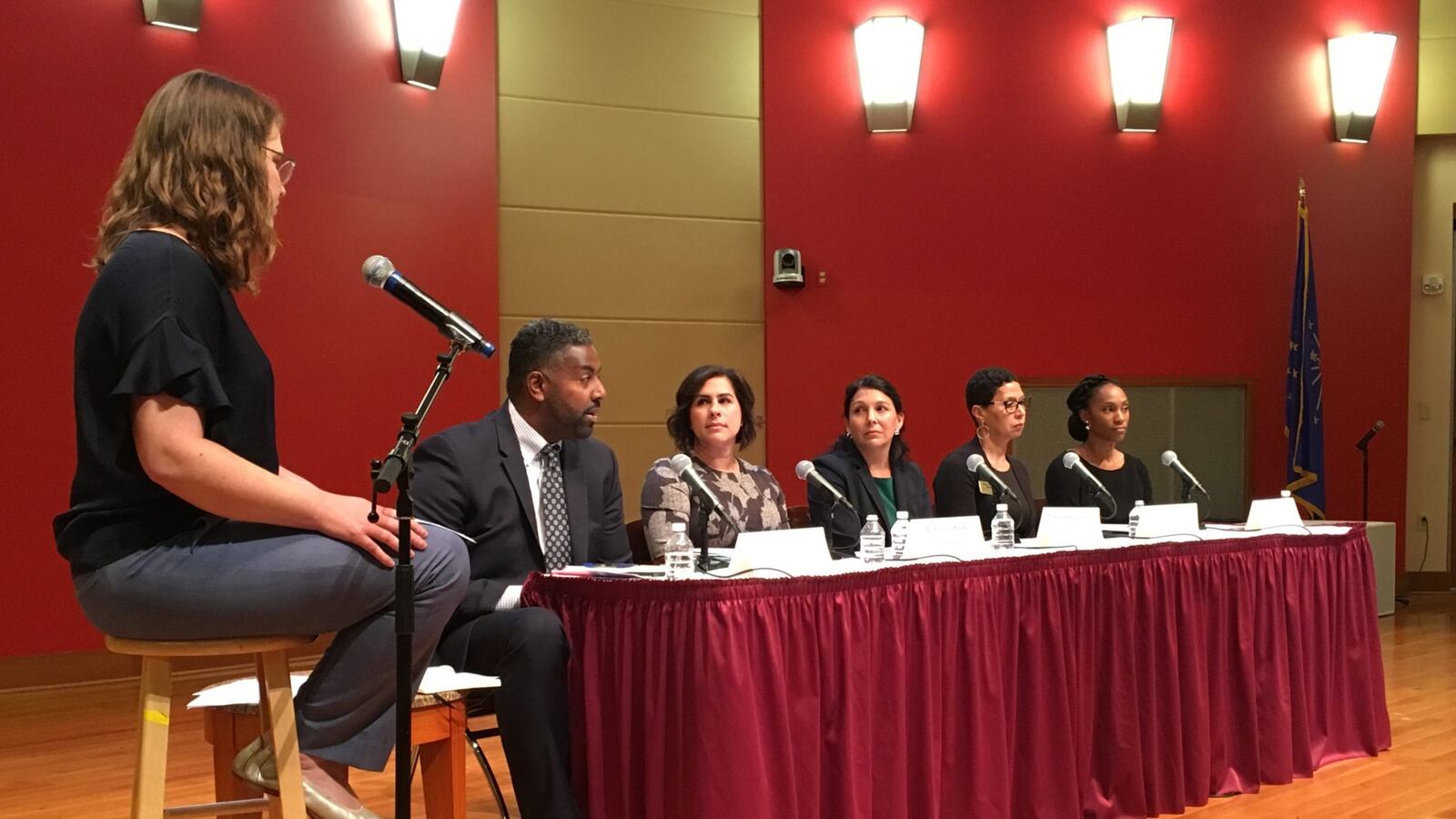Indianapolis Public Schools leaders have rolled out one change after another over the past five years — restarting failing schools, expanding school choice, and closing high schools.
But all that upheaval has sparked growing opposition. Next week, the school board election will put to the test whether these critics of Superintendent Lewis Ferebee’s administration and his policies have broad community support.
Three of the seven seats on the Indianapolis Public Schools Board are up for grabs in the election, and candidates who are critical of school choice and other Ferebee-supported policies are gunning for spots, backed by organized support and significant campaign funding.
“The changes within the system have not been transparent to assuage everyone’s fears of severe change that destabilizes the community,” at-large candidate Susan Collins said, calling for more transparency of the school board earlier this month at a Chalkbeat candidate forum.
Well-financed school board candidates who support school choice and other controversial policies have won spots on the board in the past several elections. Once on the board, they have rolled out changes such as partnerships with charter operators, a new system for students to enroll in charter and district magnet schools, and the closure of three district high schools.
Some of those policies, particularly closing high schools, have led to significant backlash from students, families, and community members. That discontent could help critics of school choice and the current IPS administration — who have consistently failed to win seats on the board — gain a foothold this election cycle.
Critics of the current administration last year formed a relatively well-organized group, the IPS Community Coalition, which organizes parents and often speaks against the current administration. Now, the group is rallying support behind three candidates — Susan Collins, Michele Lorbieski, and Taria Slack. The coalition is aligned with the local teachers union. The group receives funding from a national teachers union, and the political arm of the state teachers union also contributed $68,400 to the trio of candidates it endorsed.
What is unclear is how that stacks up against the campaigning on behalf of candidates who support the administration. Stand for Children, a political group that is not required to disclose its spending, is paying campaign workers, sending mailers, and advertising online in support of three candidates — incumbents Mary Ann Sullivan and Dorene Rodríguez Hoops, and newcomer Evan Hawkins.
Those candidates support the district’s partnerships with charter operators.
“What this board has done has been very methodical and clear and principled,” Sullivan said at the Chalkbeat forum. “We are, again, unapologetically transformational, and I realize that transformation has resulted in a lot of change at a fairly quick pace. … Now that we’ve built a lot of the foundation, it’s time to support that work.”
Two other candidates, Joanna Krumel and Sherry Shelton, haven’t raised large war chests or won influential endorsements. But either could pull out a victory. In 2016, Elizabeth Gore claimed a seat on the board despite having minimal funding and no endorsements.
Chalkbeat has been covering the race since August. We have the details on where the candidates stand on the most important issues facing the district, how much they’ve raised, and why the race matters.
Highlights:
Chalkbeat survey: Candidates for IPS Board talk budget cuts, closing schools, and more
Indianapolis Public Schools has 3 open board seats. Meet the 10 people vying for them
IPS voters have a lot on their ballot this November. Here’s why the school board race matters

